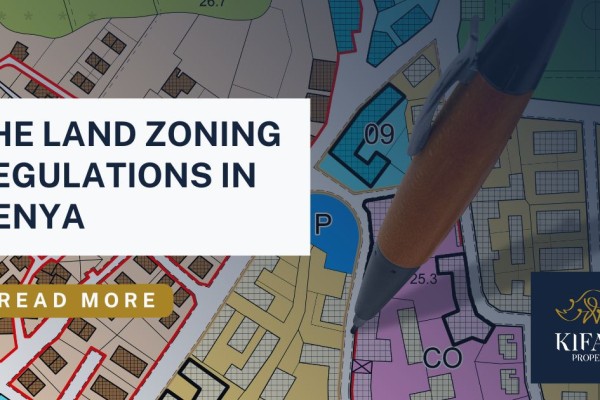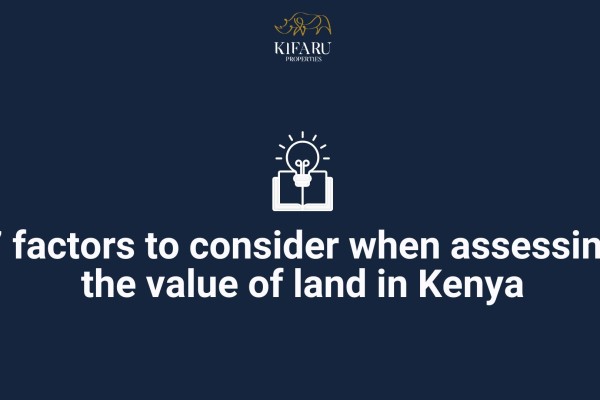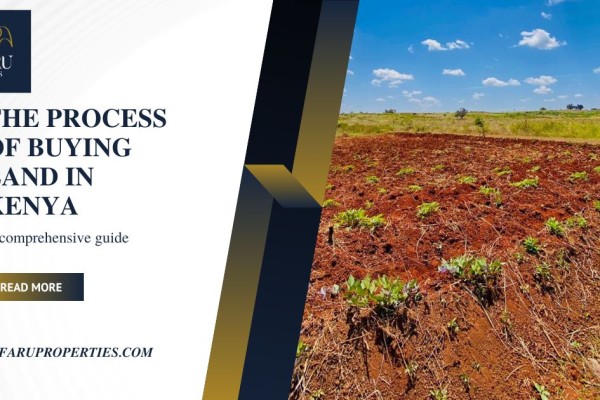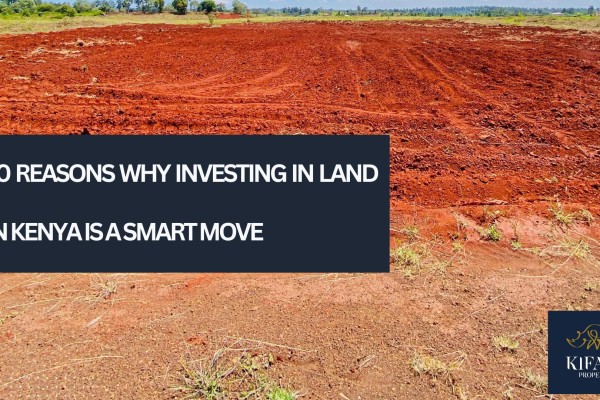- Feb 06, 2025
- Kifaru Meadows
- 353
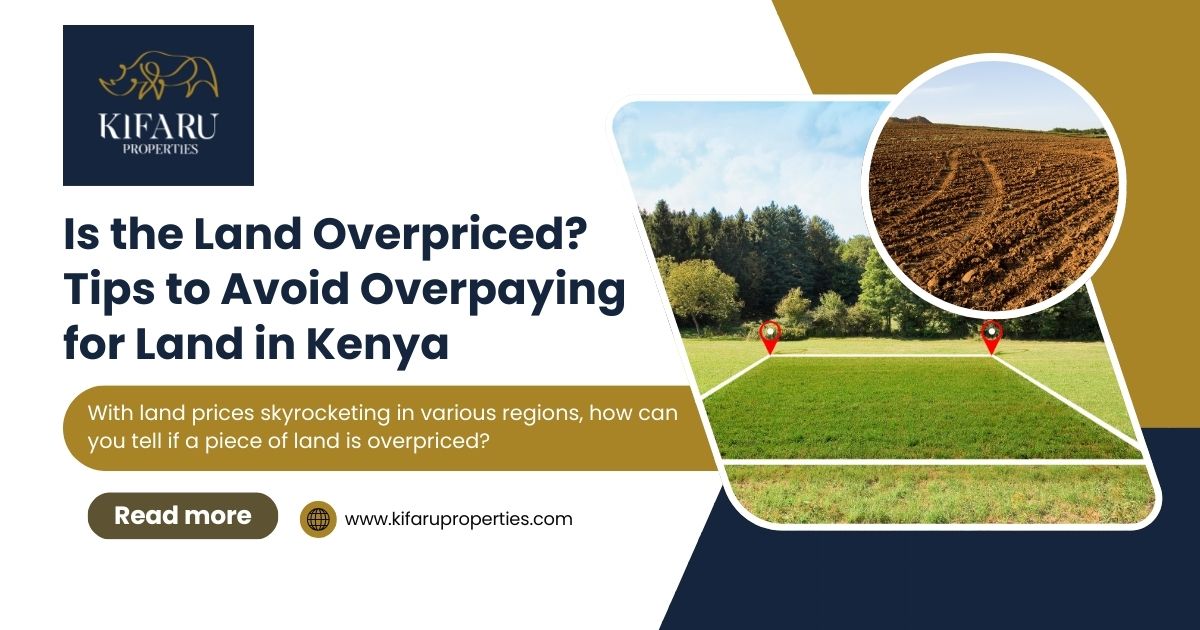
1. Conduct Market Research
Before committing to any land purchase, research the market value of similar plots in the area. Compare prices in different locations and consider factors like accessibility, infrastructure, and future development plans. Websites, real estate agents, and county land offices can provide valuable pricing insights.
2. Engage a Professional Valuer
Alicensed land valuercan give you an accurate estimate of a property's worth based on location, size, and prevailing market conditions. Valuation reports also help if you’re applying for a mortgage, as banks require them before approving loans.
3. Check the Land’s History and Ownership
A common mistake buyers make is failing to investigate the land’s ownership and history.
4. Assess Infrastructure and Amenities
Land with good road networks, water supply, electricity, and social amenities like schools and hospitals tends to be more expensive. However, some sellers overprice land by using proposed projects that may never materialize as a selling point. Always verify the status of such developments before buying.
5. Understand the Zoning and Land Use Policies
Some land is designated foragriculture, commercial, or residential use, which affects its value. For instance, converting agricultural land to commercial use requires approval and may involve extra costs. Ensure the land you’re buying is fit for your intended purpose.
6. Be Wary of Speculative Pricing
Some sellers inflate land prices based on speculation, especially in areas near upcoming infrastructure projects. While land values do appreciate over time, avoid buying in areas where prices have surged too quickly without corresponding developments.
7. Negotiate the Price
Many land sellers set high initial prices expecting buyers to negotiate. Don’t be afraid to bargain—use your market research and valuation report to support your counteroffer. If a seller is unwilling to negotiate, it might be a sign that the land is overpriced.
8. Watch Out for Fake Offers and Scams
If the price seems too high or too low compared to the market rate, proceed with caution. Some fraudsters sell land at inflated prices or fake ownership documents to unsuspecting buyers. Always work with a reputable lawyer to verify land documents before making payments.
9. Consider Alternative Locations
If the land you’re eyeing is beyond your budget, explore alternative locations with similar potential but lower prices. Sometimes, moving a few kilometers away from a prime area can save you money while still offering great value.
Final Thoughts
Overpaying for land in Kenya is a risk that can be avoided with thorough research, professional valuation, and due diligence. Always verify ownership, check zoning policies, and negotiate before making a purchase. By taking these steps, you’ll make a smart investment and secure a fair deal.
A good case to look at is Kifaru Properties that is selling their project in Ruiru , that is 50 by 100 plots from Kes 2.9M. Do your research of how their prices compare with that of their competitors selling land in the same area. You can also book a site visit by calling 0729 877 877.
